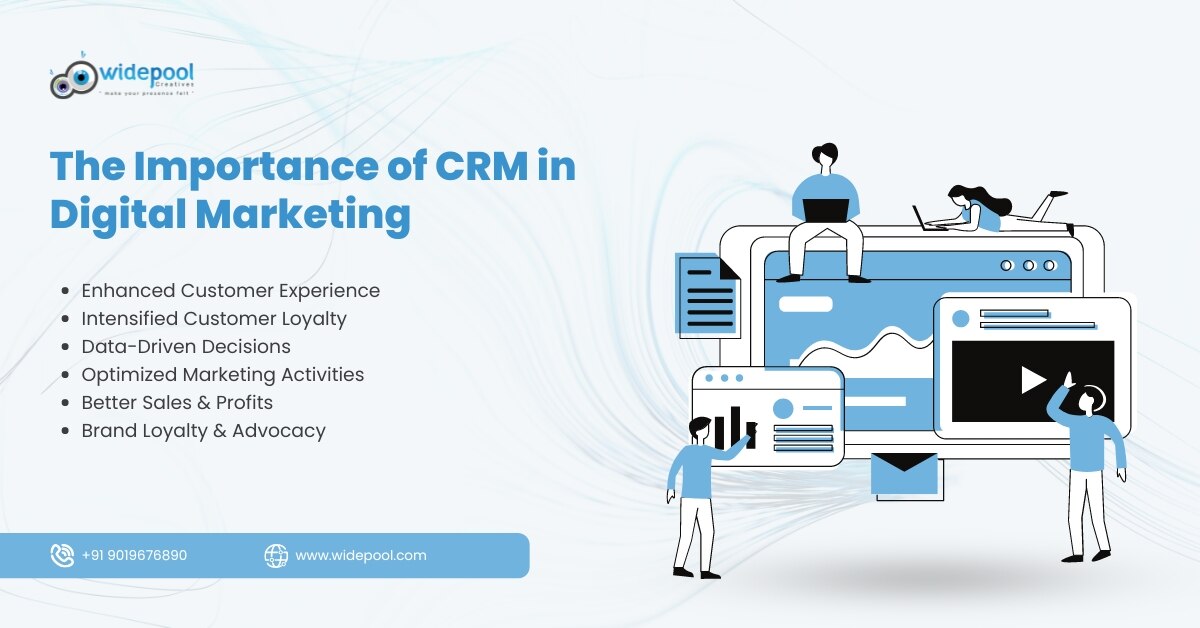Customer Relationship Management
In the ever-evolving digital marketing environment, customer relationship management (CRM) has emerged as a critical component for businesses looking to succeed. At its core, CRM is the use of data analytics to sift through large amounts of information and manage a business’ interactions with current & potential customers. With the proliferation of digital channels & rising consumer expectations, incorporating an effective CRM strategy is not optional now; in fact, it is mandatory to succeed.
Significance of Customer Relationship Management in Digital Marketing
Below mentioned are some aspects that strengthen the significance of customer relationship management in the arena of digital marketing:
Enhanced Customer Experience
Today’s consumers expect individualised interactions and customised solutions. A robust CRM system collates & structures customer data. This includes their purchase histories, consumer preferences, and their behavioural patterns. Such information helps businesses to create personalised marketing campaigns. These campaigns align with individual customers. For instance, e-commerce platforms recommend products to customers as per their previous purchase & browsing histories. This tends to create a seamless & intuitive shopping experience altogether.
Intensified Customer Loyalty
Customer retention is usually more cost-efficient than the continual process of acquiring new customers. CRM plays a key role here. It fosters loyalty & builds long-term relationships. Detailed records of customer interactions help companies to anticipate their needs. This way brands proactively address their issues and also provide timely incentives. Automated follow-ups, personalised mails, and exclusive offers tend to augment customer satisfaction considerably. This leads to repeated customers as it fosters a positive word-of-mouth.
Boosting Data-Driven Decisions
CRM helps to gain valuable insights into customer behaviours. This aids in campaign performance. Marketers analyse the data. They identify trends. Measuring the effectiveness of different strategies, they make informed decisions. For instance, a specific email campaign got a very high conversion rate. So, marketers repeat that in their future campaigns. Contrariwise, the campaigns not doing so well trigger alterations.
Optimising Marketing Activities
A well-integrated CRM helps in optimising marketing activities. This is through automating repetitive tasks as well as centralising info. Such efficiency provides marketers more time. So, they can focus on strategic planning & creative development. Automation in email sequences, social media schedules, and customer segmentation tend to ensure consistent & well-timed communications.
Better Sales & Augmented Profits
The synergy between CRM and digital marketing nurtures leads. This combined work drives the sales funnel. Marketers use personalised content to augment conversion rates. This facilitates cross-selling & up-selling opportunities. Such a targeted approach improves customers’ shopping experiences. This also maximises revenues.
Constructing Brand Loyalty & Fostering Advocacy
Happy customers unknowingly become brand ambassadors. They share their positive experiences on their social media channels. This enables companies to spot their most loyal customers. They can then interact with these loyal buddies by rewarding them with exclusive offers, quick access to new products, early bird discounts and special recognitions.
In summary, customer relationship management happens to be a critical aspect of digital marketing. It strengthens customer experiences, augments customer loyalty, proliferates data-driven decision-making, makes marketing efforts more efficient, boosts sales, and propagates brand loyalty. As digital marketing evolves, businesses using CRM systems effectively are in a better position to transform customer interactions into meaningful, lasting relationships that boost sales. Let Widepool do the magic for you!

